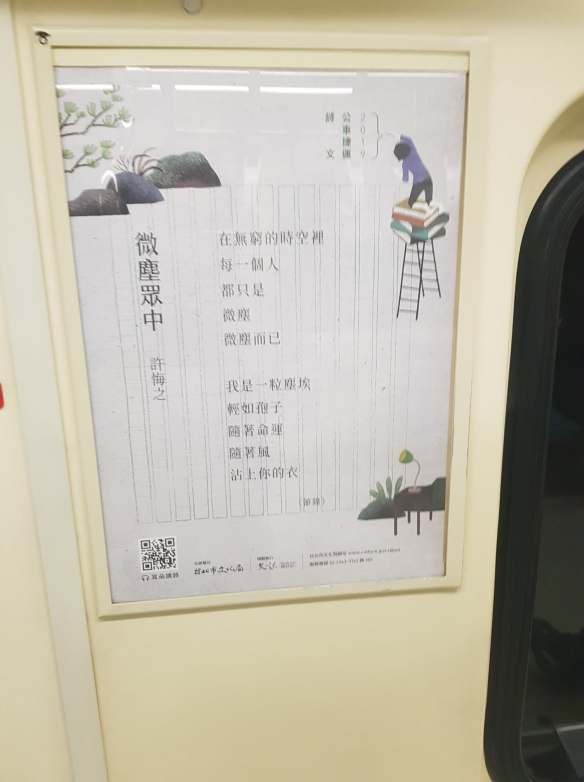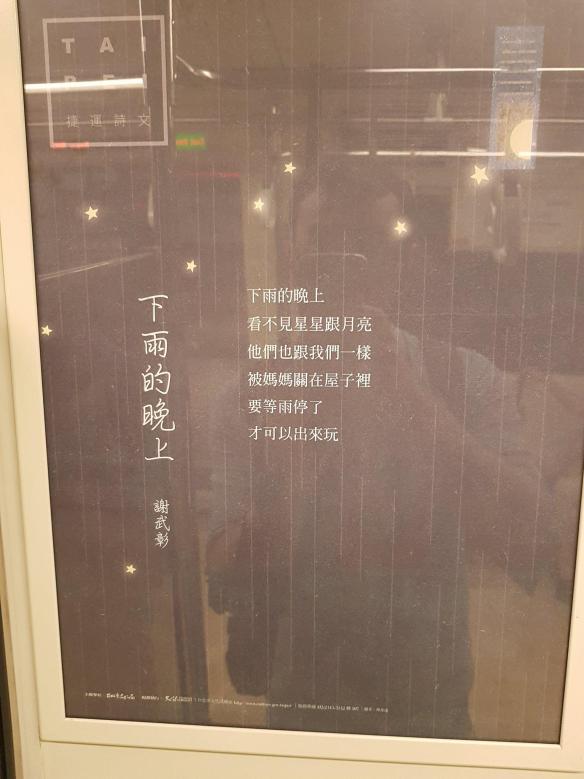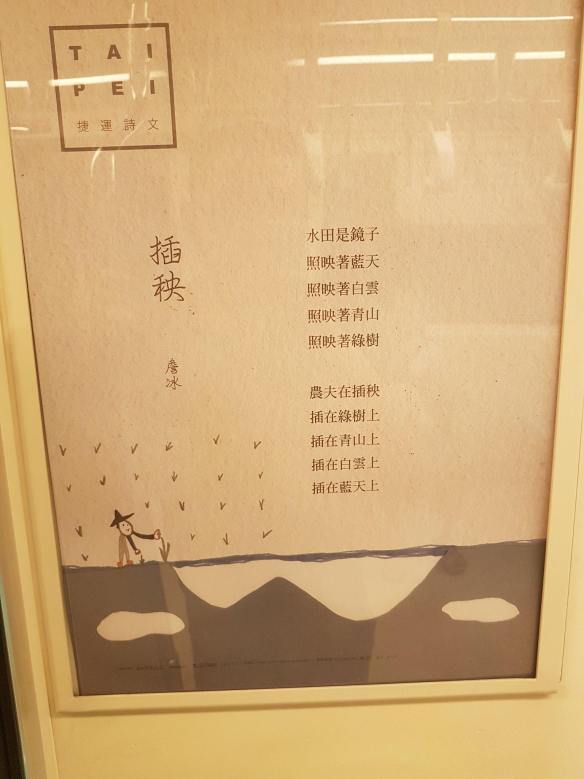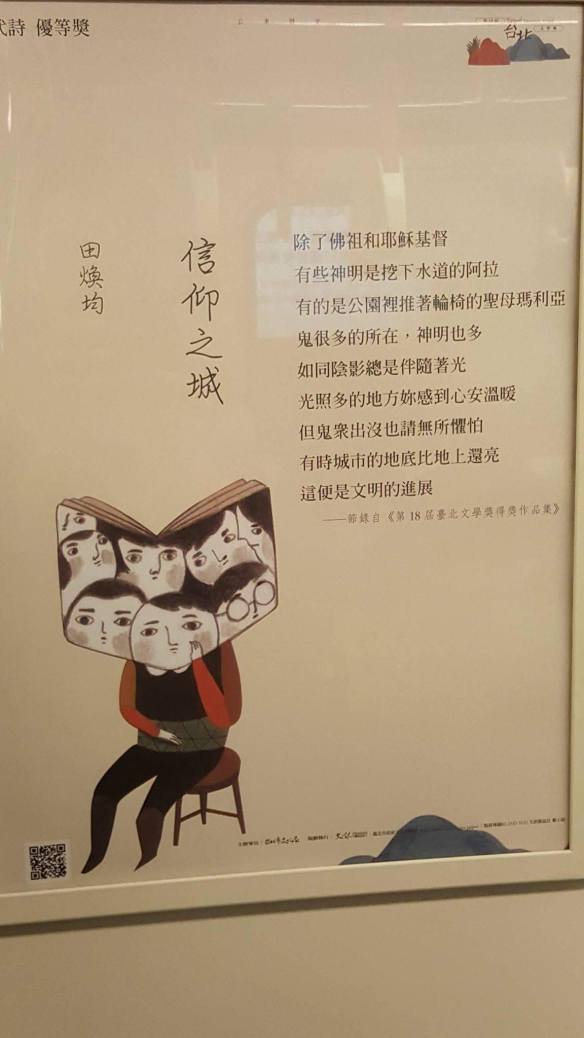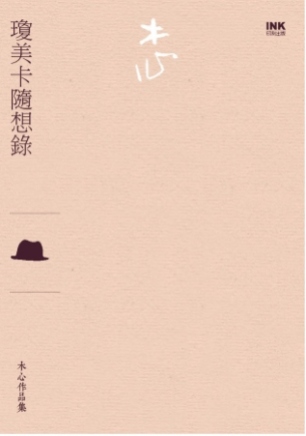他者的他者 (節錄)
遺忘彷彿重新來過,抬眼,預感這是荒涼
面向那古老的他者,我輕啟雙唇
艱澀地摩擦聲帶
「倘若靈魂擁有語言。記住他們的迷蹤
但請忘記,每個言說的當下都是失去……
The Other’s Other (Extract)
Forgetting seems to take over again, I raise my eyes with a desolate foreboding
Faced with this ancient other, I gently move my lips
My vocal cords grate together
「Suppose the soul had language. Remember their straying from the path
But please forget that every instant of speech is loss…

「他者」 or “the other” is one of those overused pseudo-intellectual terms in Taiwan (readers are welcome to leave a comment if they have any other nominations) that tend to infect poetry and fiction written by students forced to read too much Derrida or psychoanalytic texts. This normally results in painful attempts at profoundity masking rather empty writing, but for some reason, this extract of a poem captured my imagination one day in the MRT. Perhaps because of the vagueness of language in the original, leaving it up to the reader to piece together (for example, in the English translation, I used the first person, whereas the Chinese doesn’t need to specify). The sentences can also be parsed differently to what I interpreted above.
You can also hear it recited aloud in the video above!
The poet, Kuo Tien-yu, was born in Kaohsiung and studied anthropology at National Taiwan University.



